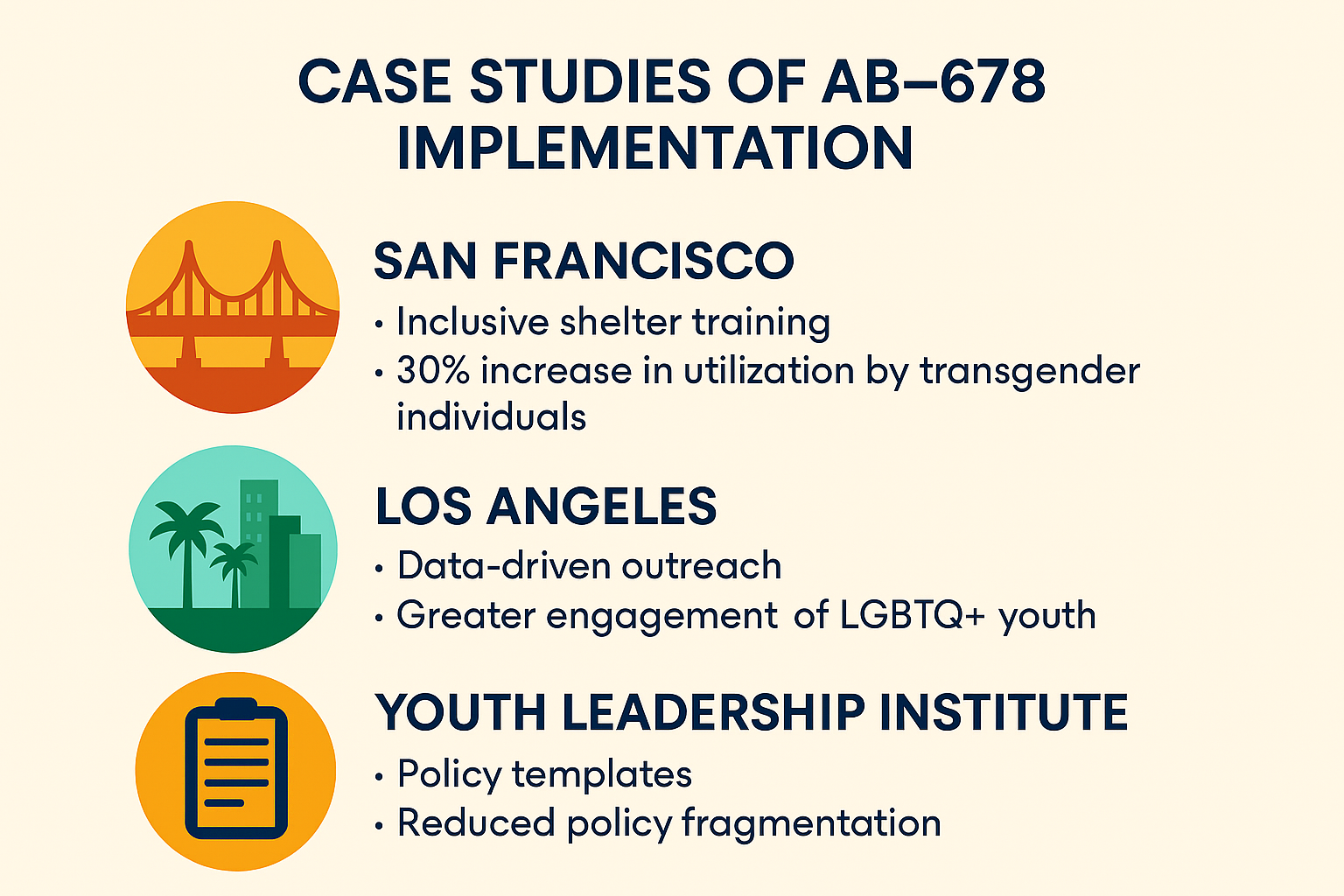Summary:
California is currently grappling with one of the most severe homelessness crises in the nation, with over 180,000 individuals experiencing homelessness. In response to this urgent situation, Assembly Bill 678 (AB 678), authored by Assemblymember Alex Lee and co-authored by Matt Haney, is a crucial step toward addressing this challenge. The bill aims to embed LGBTQ+ inclusivity into the state’s homelessness governance framework.
Legislative Context
Under existing Law, the Governor must establish the California Interagency Council on Homelessness (Cal-ICH) to coordinate efforts among state, local, and federal agencies, as well as nonprofits and private partners. The council’s mandate includes developing strategies to prevent and end homelessness, as well as making policy recommendations to legislators and relevant agencies.
AB-678 builds on this foundation by requiring Cal-ICH to prioritize culturally competent services for LGBTQ+ individuals, who face disproportionate rates of housing insecurity. Studies show LGBTQ+ youth are 120% more likely to experience homelessness than their peers, and transgender individuals often avoid shelters due to safety concerns.
Key Provisions of AB-678
The bill adds Section 8257.3 to the Welfare and Institutions Code, mandating Cal-ICH to:
· Coordinate with LGBTQ+ representatives, including housing providers, nonprofits, advocates, and researchers.
· Identify best practices for inclusive and culturally competent services.
· Develop recommendations to:
o Provide education, training, and resources for service providers.
o Expand data collection to understand LGBTQ+ needs in state homelessness programs.
o Prevent discrimination, harassment, and violence in state-funded programs.
The bill defines state homelessness programs as any initiative funded wholly or partially by the state to address or prevent homelessness or provide related services.
Reporting Requirement
Cal-ICH is held accountable by the reporting requirement, which mandates the submission of a comprehensive report with findings and recommendations to the Assembly Committee on Housing and Community Development and the Senate Committee on Housing by 1 July 2027.
Policy Rationale and Stakeholder Support
Advocates such as Equality California and the Trans Latina Coalition strongly support AB-678, citing widespread discrimination and a lack of training among service providers. Testimonies during Senate hearings emphasized that empowering providers with cultural competency tools leads to better housing outcomes and reduces the risk of returning to homelessness.
Implications for State and Local Agencies
- Data-Driven Policy: Expanded data collection will inform resource allocation and program design, enabling more informed decisions.
- Training Mandates: Providers must adopt new protocols for cultural competency.
- Compliance Oversight: Agencies must ensure adherence to anti-discrimination standards in all state-funded programs and initiatives.
Real-World Case Studies
1. San Francisco – Inclusive Shelter Training
San Francisco’s Department of Homelessness and Supportive Housing partnered with Equality California to pilot staff training modules focused on cultural competency for LGBTQ+ clients. The program included:
- Gender-affirming intake procedures.
- Anti-harassment protocols in congregate shelters.
- Dedicated liaison officers for LGBTQ+ residents.
Impact: Shelter utilization among transgender individuals increased by 30%, reversing prior trends of avoidance due to safety concerns.
2. Los Angeles – Data-Driven Outreach
The Los Angeles Homeless Services Authority (LAHSA) launched a data collection initiative aligned with the goals of AB-678. Surveys and intake forms now include voluntary questions on sexual orientation and gender identity, enabling:
- Targeted outreach for LGBTQ+ youth.
- Resource allocation for transitional housing programs.
Impact: Engagement rates among LGBTQ+ youth rose significantly when services were explicitly marketed as inclusive.
3. Youth Leadership Institute (YLI) – Policy Templates
YLI collaborated with Cal-ICH to develop policy templates for local jurisdictions. These templates outline:
- Inclusive language guidelines.
- Mandatory staff training schedules.
- Community partnerships for wraparound services.
Impact: Several counties adopted these templates, reducing policy fragmentation and improving consistency in service delivery. [yli.or
Challenges Identified
- Resource Gaps: Smaller counties lack funding for training and data systems.
- Privacy Concerns: Collecting sensitive identity data requires robust confidentiality safeguards.
- Resistance to Change: Some providers need incentives to adopt new protocols.
Policy Implications
AB-678 is not just a legislative mandate—it’s a cultural shift in homelessness services. By embedding inclusivity into governance structures, California aims to:
- Reduce discrimination and violence in shelters.
- Improve housing stability for LGBTQ+ individuals.
- Create a replicable model for other states.
Conclusion
AB-678 represents a critical step toward equity in homelessness policy, ensuring that LGBTQ+ individuals receive affirming and culturally competent services. By institutionalizing these requirements within Cal-ICH, California signals its commitment to addressing systemic barriers and improving outcomes for vulnerable populations.
